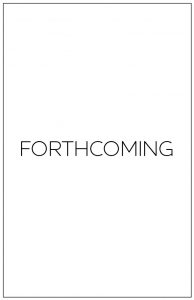Archival Pedagogies
Editors: Magdalena Wisnewska-Drewniak, James Lowry, Pimphot Seelakate, and Tshepho Mosweu
Price: $60
Expected: Early 2026
ISBN: 978-1-63400-185-4
Series on Archives, Archivists and SocietyThis book is number 11 in the Series on Archives, Archivists, and Society, Michelle Caswell, editor.
Archival pedagogy – the teaching of archival knowledge and skills – is practiced worldwide but remains under-examined in the scholarly and professional literature of archival studies. What might we learn about, and how might we deepen our practice in archival pedagogy if there was more international exchange on the topic? That question drove the compilation of Archival Pedagogies, a new edited collection that brings together some of the leading archival educators from across the globe, with an equally international editorial team and editorial board, to explore the frameworks, methods, contents and challenges of teaching recordkeepers and records users.
Around the world, archival pedagogy is highly diverse, with significant differences not only between continents or regions, but also between neighboring nations and even within a single country, and across different sites of learning, such as universities, archival repositories, and online classrooms. These variations stem from a range of factors, including historical traditions both of teaching and of archival thought and practice, social contexts such as the organization of archival and heritage institutions and the labor market, legal frameworks for information governance and for cultural heritage, and resourcing for digital and physical record-keeping. As a result, there is no single, unified “archival pedagogy,” but rather a multitude of diverse “archival pedagogies”—distinct philosophies, strategies, and practices for preparing future archivists.
This book gathers authors from various countries, most of whom present local, context-specific perspectives on the subject, describing the archival-pedagogical landscape they are most familiar with. This approach enables readers to gain insight into different challenges and methods in archival education. Such an understanding can inspire reflection on local strategies and programs of study, potentially leading to widened understandings of other professional contexts, new thinking about the curriculum and its delivery, and the mutual exchange of instructional practices. Just as it benefits practice, for instance in technical innovation, standards setting, and cultural diplomacy, cross-cultural exchange has benefits for archival education: such exchange could help shape future pedagogies that prepare students for local specificities within a globalised world.
The Editors
Magdalena Wiśniewska-Drewniak is an Assistant Professor at the Faculty of History at Nicolaus Copernicus University in Toruń, Poland, where she teaches courses on community archives, archival arrangement and description, and international archival life. She earned her PhD in history with a specialization in archival studies in 2018. Her scholarly interests center on community archives and research methodologies in archival science. She has published extensively on Polish community archives, including authoring a monograph (“Inaczej to zniknie…” 2019), and has led two research projects in this field. Her most recent project, “The Impact of Independent Community Archives,” involves empirical research exploring the social, emotional, and personal effects of Polish independent archives on their founders and communities. She collaborates closely with the Center for Community Archives in Warsaw and participates in international initiatives related to archival research and education. She is a member of the Society of Polish Archivists, the International Council on Archives, and the ICARUS4all community.
James Lowry is a Professor at the Graduate School of Library and Information Studies, Queens College, City University of New York. He is the Ellen Libretto and Adam Conrad Endowed Chair in Information Studies, and the founder and director of the Archival Technologies Lab. He is an Honorary Research Fellow at University College London and the University of Liverpool, where he was co-director of the Centre for Archive Studies, following a career in archives. His recent publications include Disputed Archival Heritage (Routledge, 2022), an edited anthology that won the Society of American Archivists’ Waldo Gifford Leland Award for “writing of superior excellence and usefulness in the field of archival history, theory or practice”. His writing has been translated into French, Spanish and Portuguese. James is convenor of Archival Discourses, an international research network that fosters critical enquiry into the intellectual history of archival science, and with Dr. Sumayya Ahmed, he co-edits the Routledge Studies in Archives book series.
Tshepho Mosweu is a senior lecturer at the University of Botswana specializing in archives, records, and knowledge management. Her background includes serving as an archivist at the Botswana National Archives and Records Services. Holding a PhD in Information Science from the University of South Africa, Dr. Mosweu actively contributes to international projects such as InterPARES Trust AI and the Catalyzing African Community Archives project at the University of Illinois. She also serves as deputy editor for the Journal of the South African Society of Archivists, chairs the Records and Information Association in Botswana (RIAB), and is an International Council on Archives (ICA) Expert Group on Advocacy member. Her scholarly work spans publications on diverse topics such as electronic records, digital curation, and oral history.
Pimphot Seelakate, Ph.D. is a lecturer and Assistant Dean on Administration at the Department of Library Science, Faculty of Arts, Chulalongkorn University. She has been teaching courses on records management for undergraduate and post-graduate programs at the Faculty of Arts, Chulalongkorn University, which are Bachelor of Arts in Information Studies, Master of Arts Program in Data and Information Curation, Graduate Programs in Information Studies, and Bachelor of Arts in Language and Culture (BALAC). Dr. Seelakate’s interests include laws and standards for records and archives. She has been actively involved in several academic and professional activities in local and international venues, e.g., working in the Training Programme Advisory Group (TPAG) and the Section on Archival Education (SAE) of the International Council on Archives (ICA). Also, she has been a committee member of the Association of Thai Archives.
